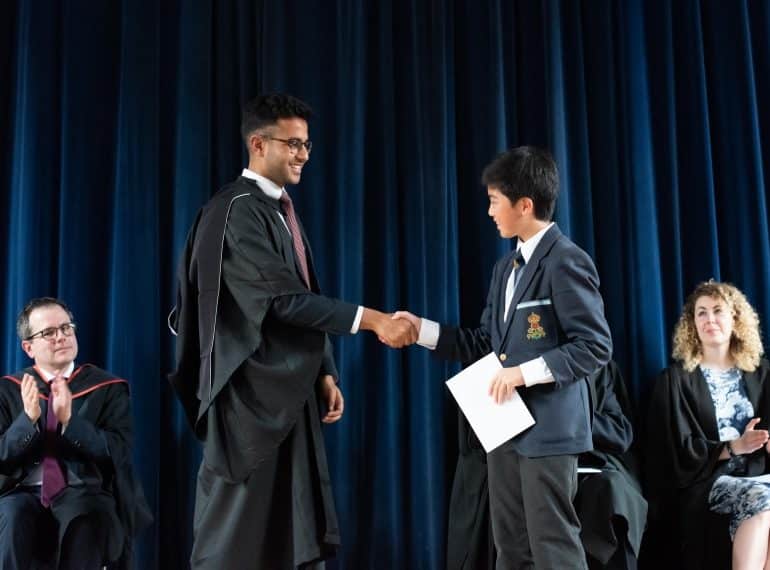
With more than 100 prizes presented, the Junior Awards Ceremony in the final week of the academic year gave public recognition to the high achievement and outstanding commitment of QE’s youngest pupils.
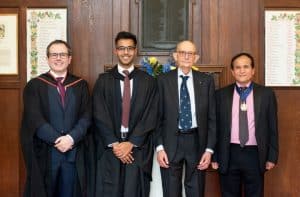 The formal ceremony in the School Hall took its traditional form, with the audience of prize-winners, their parents, VIP guests and staff treated to classical music interludes during the prize-giving.
The formal ceremony in the School Hall took its traditional form, with the audience of prize-winners, their parents, VIP guests and staff treated to classical music interludes during the prize-giving.
Yet in his speech, Headmaster Neil Enright reminded the young high-fliers that theirs is a changing world: “If rapid progress is a feature of our School, it most certainly is in aspects of the wider world. Whilst much focus this month is on the 50th anniversary of the moon landings, it is also the 100th anniversary of the first two-way crossing of the Atlantic by airship. That only fifty years should separate those landmark events, itself would seem to emphasise the point. The rate of technological and human progress has never been so great.”
This, said Mr Enright, provided the boys both with wonderful opportunities and new challenges. 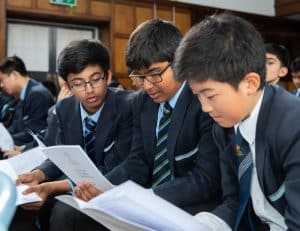 “Try new things and broaden your base of skills and knowledge, as your generation will need to adapt in an economy and a society disrupted by technology and associated structural change.”
“Try new things and broaden your base of skills and knowledge, as your generation will need to adapt in an economy and a society disrupted by technology and associated structural change.”
Technological change was also making the globe “smaller, more connected and more accessible,” he added. “In the last year boys here have been variously to Canada (for rugby and skiing), Beijing (for astrophysics), Russia (for History and Politics), France and Germany (on language exchange programmes), Sicily (for Geography), Kentucky (for robotics) and New York (for an international mock trial competition), among other destinations.
“But” the Headmaster said, “we may have reached a moment when progress is not all about faster, further and bigger – at least in the non-digital world. Climate change, for example, means grappling with new imperatives, of doing things smarter, cleaner and more sustainably.”
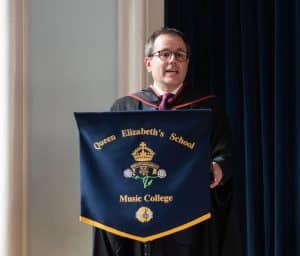 The implications of this for QE’s pupils were clear: “It is through a rounded combination of academic, technical, creative and social skills that progress on the biggest issues facing us in the future will rely. This is a roundedness we try to prepare you for…You are in a privileged position to be well set to face that future with confidence and optimism, building on your prior success to progress further and further, to thrive in a changing world, and to change it.”
The implications of this for QE’s pupils were clear: “It is through a rounded combination of academic, technical, creative and social skills that progress on the biggest issues facing us in the future will rely. This is a roundedness we try to prepare you for…You are in a privileged position to be well set to face that future with confidence and optimism, building on your prior success to progress further and further, to thrive in a changing world, and to change it.”
Among the VIP guests at the afternoon ceremony were Councillor Lachhya Gurung, Deputy Mayor of the Borough of Barnet, as well as governors and representatives of the Friends of Queen Elizabeth’s. In his welcome to the Deputy Mayor, the Headmaster pointed to his 18 years of service with the Brigade of Gurkhas and his longstanding chairmanship of the Burnt Oak Nepalese Community.
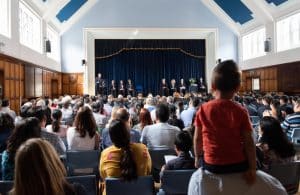 The Headmaster also welcomed the Guest of Honour, Old Elizabethan Akash Gandhi (2005–2012), who, he told the audience, had himself picked up no fewer than five Junior Awards when he was in Year 7, for Geography, Mathematics, Science, Stapylton House and the overall Charles Fitch Memorial Award for Outstanding Commitment.
The Headmaster also welcomed the Guest of Honour, Old Elizabethan Akash Gandhi (2005–2012), who, he told the audience, had himself picked up no fewer than five Junior Awards when he was in Year 7, for Geography, Mathematics, Science, Stapylton House and the overall Charles Fitch Memorial Award for Outstanding Commitment.
In his speech, Akash, who is currently working as a Junior Doctor, urged current boys not to forget the values and ethos of QE.
Akash threw himself into life as a pupil, playing cricket (he was described by the Headmaster as an “excellent all-rounder”), getting involved in debating, helping younger boys through peer mentoring, supporting the Sai School Appeal and serving as a Senior Lieutenant, then one of the leading positions within the prefect team.
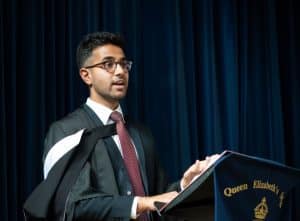 On leaving, he went up to Queens’ College, Cambridge, to read Medicine, taking a first-class degree with prize & honours. From there, he went to University College London, for his clinical training, again excelling in his studies. Akash is now a Junior Doctor in Northwick Park Hospital, Harrow, but carves out time every year to support QE’s aspiring Sixth Form medics with their UCAT (University Clinical Aptitude Test) preparations.
On leaving, he went up to Queens’ College, Cambridge, to read Medicine, taking a first-class degree with prize & honours. From there, he went to University College London, for his clinical training, again excelling in his studies. Akash is now a Junior Doctor in Northwick Park Hospital, Harrow, but carves out time every year to support QE’s aspiring Sixth Form medics with their UCAT (University Clinical Aptitude Test) preparations.
Akash recalled the message instilled in him by his father: “It is not about what you do, but who you become by what you do.” It is, he said, more important to be concerned about what will be said in your eulogy than what is written in your CV.
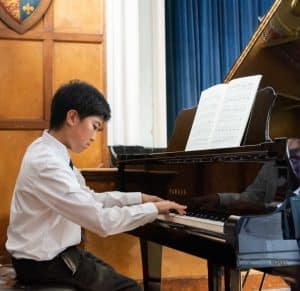 And Akash had three specific areas of advice. The first was to find and follow your passions. “During my time at QE, my passions were my culture, cricket, charity work and football. And so, at university I found myself as the Vice-President of Cambridge University’s India Society. I also captained my college’s cricket team all the way to the final of the cup tournament – despite only ever representing QE’s C team.”
And Akash had three specific areas of advice. The first was to find and follow your passions. “During my time at QE, my passions were my culture, cricket, charity work and football. And so, at university I found myself as the Vice-President of Cambridge University’s India Society. I also captained my college’s cricket team all the way to the final of the cup tournament – despite only ever representing QE’s C team.”
The second area was to find your mentors and to remember to thank them. “You are not alone, and you’d be a fool not to seek advice from those around you, especially in an establishment like this one.
“Thirdly, and perhaps most importantly, embrace the power of true friendships – trust me on this one,” Akash told the boys. “From my experience, boys of this School look out for each other long after they have stopped sporting its badge. Joining Stapylton House with Mr [Mark] Peplow at the helm, little did I realise the everlasting friendships that I would go on to make. With some of them, I have travelled across central America, Asia and Australia. With others, I have worked together to help provide treatment for patients attending emergency departments across London.
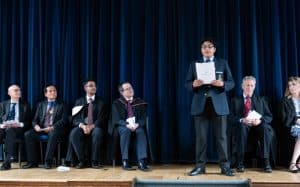 “I can safely say that I am still surrounded by the values, ethos and ethic that I felt whilst studying at QE. I suppose that’s easy to say when I got to work last Friday to find that four out of the five doctors on my team were also QE boys. And as for the fifth? She’s a proud mother of a son who currently goes to QE!
“I can safely say that I am still surrounded by the values, ethos and ethic that I felt whilst studying at QE. I suppose that’s easy to say when I got to work last Friday to find that four out of the five doctors on my team were also QE boys. And as for the fifth? She’s a proud mother of a son who currently goes to QE!
“Congratulations on your achievements, keep working hard, and the best of luck for the future,” Akash concluded.
During the afternoon, the School’s young musicians performed works by Handel, Bach, Chopin 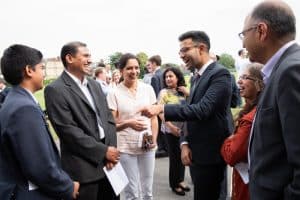 and the Bohemia-born Josef Fiala, who died in 1816. A Recessional piece was composed by Year 12’s Ifeatu Obiora and Federico Rocco.
and the Bohemia-born Josef Fiala, who died in 1816. A Recessional piece was composed by Year 12’s Ifeatu Obiora and Federico Rocco.
The vote of thanks was delivered by Saim Khan, winner of the Year 7 award for public speaking.
The awards presented covered a full range of academic subjects and extra-curricular activities, with some also recognising service to the School.
After the ceremony, boys and their parents enjoyed refreshments with staff and other guests.

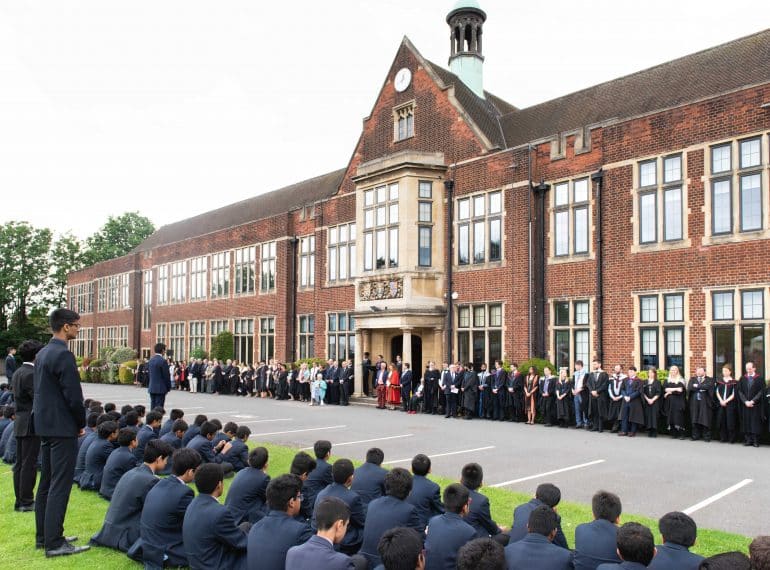
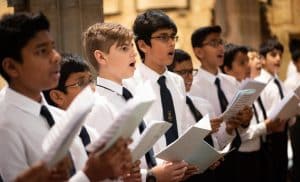 Pupils, old boys, parents, staff and many other supporters of the School turned out in force for the afternoon fete, which followed the traditional church service and the reading of the School roll and of the School Chronicle earlier in the day.
Pupils, old boys, parents, staff and many other supporters of the School turned out in force for the afternoon fete, which followed the traditional church service and the reading of the School roll and of the School Chronicle earlier in the day.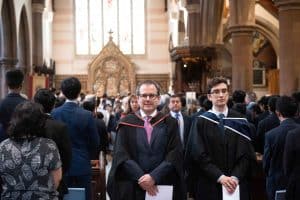 the Chamber Choir’s contributions to the service.
the Chamber Choir’s contributions to the service.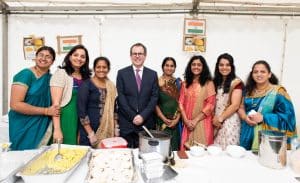 as a career. “Your friends might all want to become lawyers, perhaps your parents want you to become a doctor. These are good professions, interesting, challenging and worthwhile. But you shouldn’t live someone else’s dream. If you do, neither you nor they will be fulfilled…There’s an old adage here: choose a job you love, and you’ll never work another day in your life.
as a career. “Your friends might all want to become lawyers, perhaps your parents want you to become a doctor. These are good professions, interesting, challenging and worthwhile. But you shouldn’t live someone else’s dream. If you do, neither you nor they will be fulfilled…There’s an old adage here: choose a job you love, and you’ll never work another day in your life.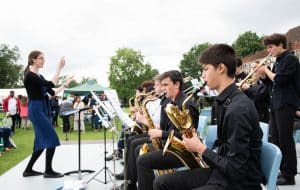 tive about how to do what you enjoy, and do it. Because you can do it. You’re bright. You’re at a top school, and you’re in one of the world’s most dynamic cities. You can do it. But it’s up to you to decide what ‘it’ is. Now go do it,” he concluded.
tive about how to do what you enjoy, and do it. Because you can do it. You’re bright. You’re at a top school, and you’re in one of the world’s most dynamic cities. You can do it. But it’s up to you to decide what ‘it’ is. Now go do it,” he concluded.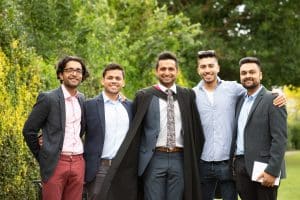 the Main Building for the reading of the roll and of the School Chronicle. This tradition, established by Headmaster Ernest Jenkins in 1930, involves the Headmaster reading aloud a formal history of the School, which is updated annually.
the Main Building for the reading of the roll and of the School Chronicle. This tradition, established by Headmaster Ernest Jenkins in 1930, involves the Headmaster reading aloud a formal history of the School, which is updated annually.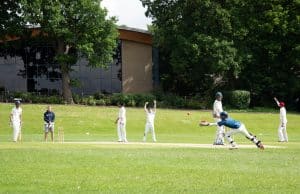 alumni participated in the afternoon’s cricket match, which pits the School against an OE XI. Changeable conditions made for a tricky wicket for the batsmen on both sides.
alumni participated in the afternoon’s cricket match, which pits the School against an OE XI. Changeable conditions made for a tricky wicket for the batsmen on both sides.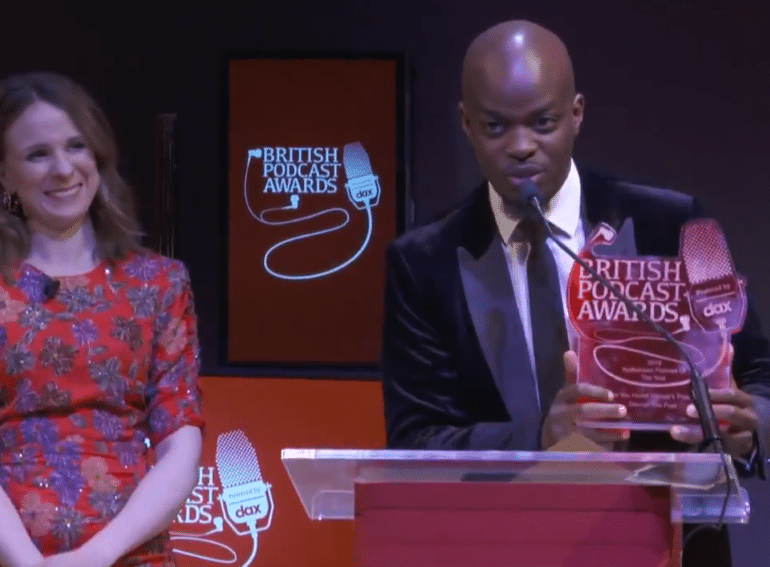
 There was reward, too, for another QE alumnus, Bilal Harry Khan (OE 2003–2010). Over the Bridge, a podcast Bilal makes with three black and mixed-race friends he met while studying at Cambridge, won bronze in the Acast Moment of the Year category. Bilal took the time to congratulate his fellow Elizabethan, George, on his success via Twitter.
There was reward, too, for another QE alumnus, Bilal Harry Khan (OE 2003–2010). Over the Bridge, a podcast Bilal makes with three black and mixed-race friends he met while studying at Cambridge, won bronze in the Acast Moment of the Year category. Bilal took the time to congratulate his fellow Elizabethan, George, on his success via Twitter. rds, George told the BBC that he first established the podcast because he “wanted to give young people a way to rethink their situation, especially if they’re in the inner city like I was”.
rds, George told the BBC that he first established the podcast because he “wanted to give young people a way to rethink their situation, especially if they’re in the inner city like I was”.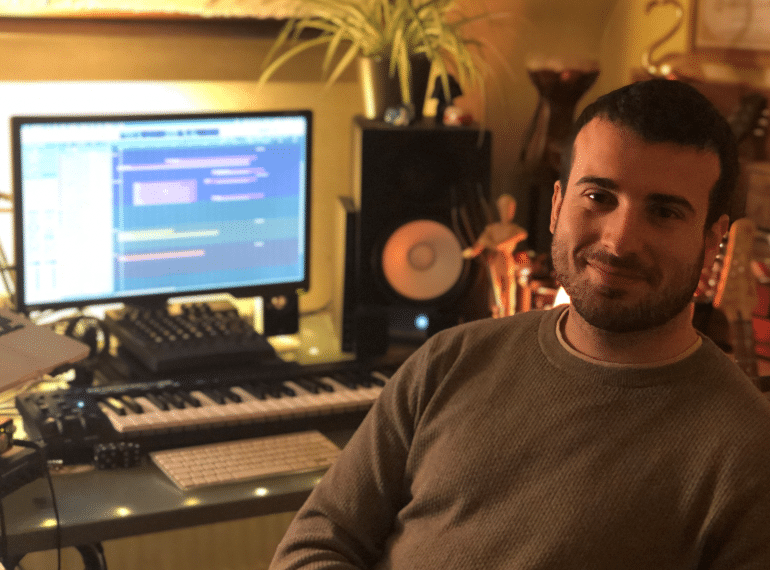
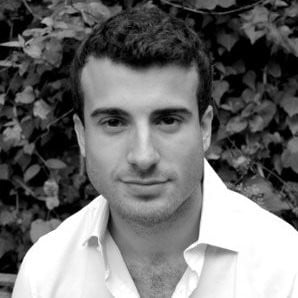 Richard (OE 2005–2012) originally planned to study Law at university. “Although I really struggled to write my personal statement, I managed to get something together and got ready to send off my applications.
Richard (OE 2005–2012) originally planned to study Law at university. “Although I really struggled to write my personal statement, I managed to get something together and got ready to send off my applications.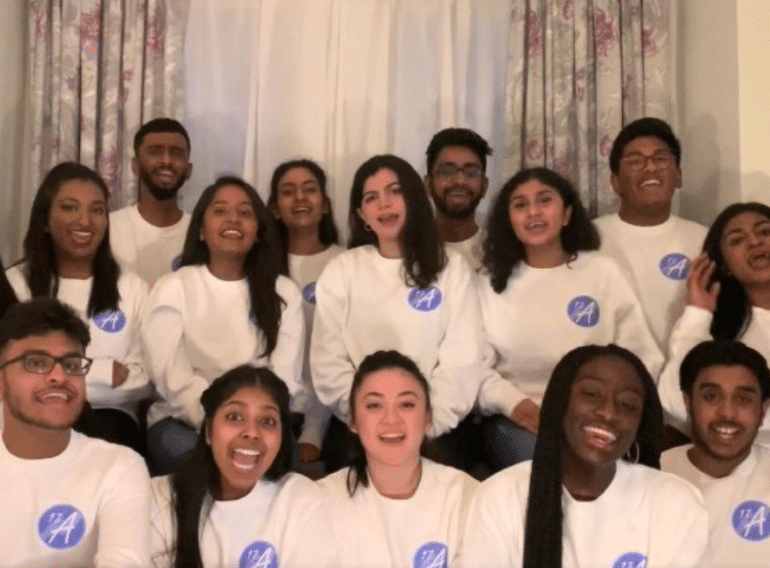
 Raahul Niranchanan (2010–2017), Vipushan Konesalingam (2010-2016) and Athithyan Vijayathasan (2009-2016) are supporting a string of fundraising activities to raise £3,000 for Ocean Stars Trust – a UK charity working in Sri Lanka.
Raahul Niranchanan (2010–2017), Vipushan Konesalingam (2010-2016) and Athithyan Vijayathasan (2009-2016) are supporting a string of fundraising activities to raise £3,000 for Ocean Stars Trust – a UK charity working in Sri Lanka.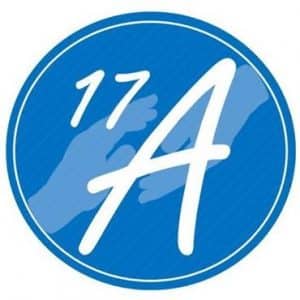 Their JustGiving page explains their motivation: “We appreciate that growing up in London…we often take what we have for granted. So, when uni got a bit tough for us and we started complaining, we took a step back: we realised we’ve actually got an opportunity to even get as far as studying a degree.
Their JustGiving page explains their motivation: “We appreciate that growing up in London…we often take what we have for granted. So, when uni got a bit tough for us and we started complaining, we took a step back: we realised we’ve actually got an opportunity to even get as far as studying a degree. The charity they have chosen works closely with orphans and other disadvantaged children in Sri Lanka.
The charity they have chosen works closely with orphans and other disadvantaged children in Sri Lanka.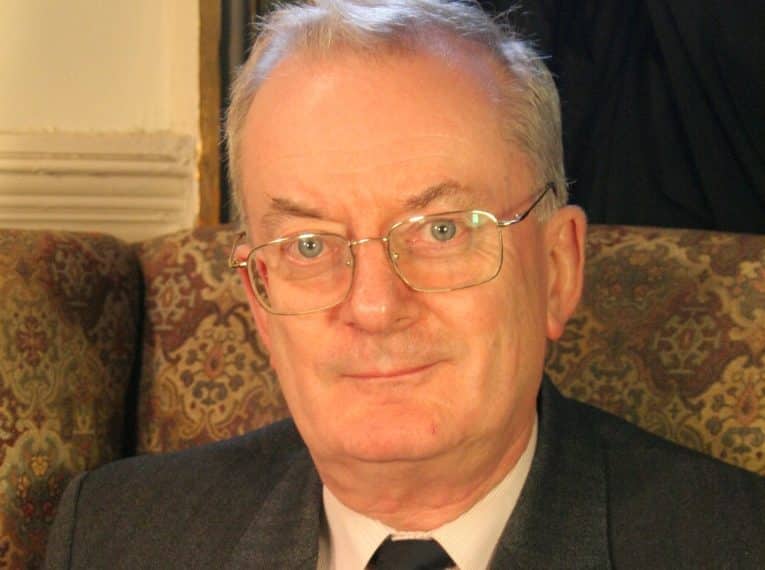
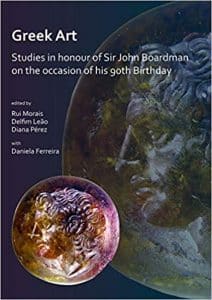
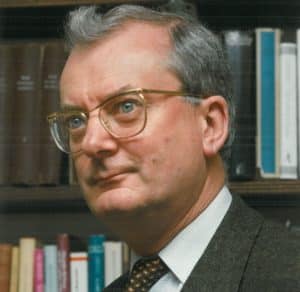 a papers, was for those applying for state scholarships for university, before the later introduction of a universal grant system.]Perseverance, and my parents’ patience, were rewarded, and I did in the end in 1959 achieve the Holy Grail of an Oxford Scholarship in Classics.”
a papers, was for those applying for state scholarships for university, before the later introduction of a universal grant system.]Perseverance, and my parents’ patience, were rewarded, and I did in the end in 1959 achieve the Holy Grail of an Oxford Scholarship in Classics.”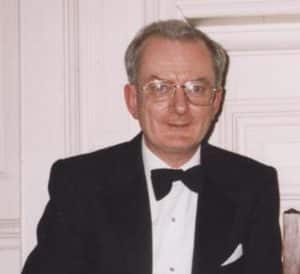 He has held a number of visiting fellowships; Wolfson College, Oxford (1984), University of New England, Australia (1988), Corpus Christi College, Oxford (1993), and All Souls College, Oxford (1998). He served as President of the Classical Association from 2014 to 2015. In 1987, he was elected a Fellow of the British Academy and in 2005 was made a Foreign Member of the Royal Danish Academy.
He has held a number of visiting fellowships; Wolfson College, Oxford (1984), University of New England, Australia (1988), Corpus Christi College, Oxford (1993), and All Souls College, Oxford (1998). He served as President of the Classical Association from 2014 to 2015. In 1987, he was elected a Fellow of the British Academy and in 2005 was made a Foreign Member of the Royal Danish Academy.